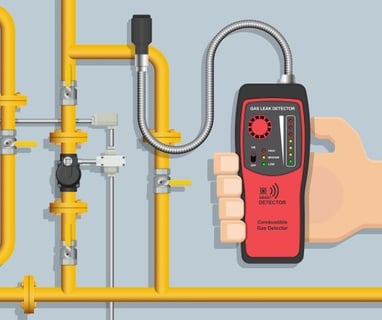The Importance of Periodic Planned Maintenance
Gas Appliances in Commercial Settings
6/12/20232 min read


In commercial settings across England, gas appliances play a vital role in various industries, including restaurants, hotels, hospitals, and manufacturing facilities. These appliances ensure smooth operations, provide essential services, and contribute to the overall productivity and comfort of the establishment. However, to maintain their efficiency, safety, and compliance with regulations, periodic planned maintenance is of utmost importance. In this blog post, we will explore the significance of regular maintenance for gas appliances in commercial environments in England.
Ensuring Safety
The safety of employees, customers, and the premises itself is a top priority in any commercial establishment. Gas appliances, if not properly maintained, can pose significant safety risks. Periodic planned maintenance helps identify and rectify potential issues such as gas leaks, faulty connections, and malfunctioning components. Regular inspections, conducted by qualified gas engineers, can detect problems at an early stage, preventing accidents, and ensuring a safe working environment.
Optimizing Performance
Gas appliances in commercial settings are subjected to continuous usage, often under demanding conditions. Over time, wear and tear can affect their performance, resulting in reduced efficiency and increased energy consumption. Planned maintenance allows for the cleaning, calibration, and adjustment of these appliances, ensuring optimal performance. By addressing minor issues promptly, businesses can prevent major breakdowns, avoid disruptions in operations, and maintain consistent service quality.
Extending Lifespan
Commercial gas appliances are significant investments for businesses. Proper maintenance can significantly extend their lifespan, maximizing the return on investment. By following manufacturer guidelines and industry best practices, regular inspections and servicing can help identify potential problems before they become severe, thereby increasing the longevity of the equipment. This proactive approach saves businesses from premature replacement costs and the hassle of unexpected equipment failures.
Regulatory Compliance
In England, commercial establishments are bound by stringent regulations regarding gas safety. The Health and Safety Executive (HSE) provides guidelines and requirements for gas installations, maintenance, and safety checks. Regular planned maintenance ensures compliance with these regulations, safeguarding businesses from legal consequences and potential penalties. Employing certified gas engineers who adhere to the appropriate standards is crucial for meeting the necessary compliance requirements.
Cost Savings
While some businesses might perceive periodic planned maintenance as an additional expense, it actually offers long-term cost savings. Timely identification and rectification of issues prevent major breakdowns and the associated repair costs. Well-maintained gas appliances operate efficiently, reducing energy consumption and lowering utility bills. Moreover, extending the lifespan of equipment through proper maintenance helps delay the need for replacements, saving significant capital expenditure in the long run.
Conclusion
Periodic planned maintenance for gas appliances in commercial settings in England is crucial for ensuring safety, optimizing performance, extending lifespan, complying with regulations, and achieving cost savings. By prioritizing regular inspections and servicing by qualified professionals, businesses can maintain their gas appliances at peak efficiency, enhance safety standards, and avoid unnecessary disruptions to operations. Investing in maintenance today will undoubtedly yield substantial benefits tomorrow, making it a wise choice for any commercial establishment relying on gas appliances.
